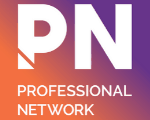How to Start a Speech
One of the most challenging aspects of making a speech is knowing how to start. With a captive audience, eager to hear you present your message, stepping onto the podium can be daunting – and there’s nothing more disconcerting and enthusiasm-draining than people losing interest only moments after you begin. If you’ve lost the attention of your audience, recovering is difficult and your speech is likely to fade into obscurity quickly.
The first minute of your speech will define how effectively you convey your message. Like a new bestseller on the shelf of the bookshop, your speech relies on you making an instant impact. Unintentionally, humans tend to make snap judgements and become easily bored, so the opening gambits of your speech much be captivating and appealing, and must immediate create a strong empathy with your audience, so that the entire speech becomes a two-way conversation in which one party is 95% the listener.
If you’re in need of the perfect way to start a speech, consider these strategies to capture the interest and attention of your audience:
Questions
Questions are designed to probe the minds of the audience members and can be literal, which might invite a personal response from a chosen listener or a show of hands from a larger number of people, or rhetorical, which demands no overt response at all. Whichever question type you choose to pitch, the effect is the same: the audience intuitively answers, even if this is silently in their heads. It’s an effective way to engage people quickly and bring them, metaphorically, onto the same page from which you are reading.
Stories
Let’s face it, most people enjoy listening to a story, especially if it’s told convincingly or dramatically by a skilled orator. That’s why children love storytelling and, Peter Pan-like, a significant proportion of an audience will engage with you once you start to deliver. A story needn’t be about a life-changing or profound moment you’ve experienced (although it could be); a recount of an amusing incident, an observation you’ve made, or a thoughtful conversation could also set the tone for your speech well. Above all, make sure the chosen story is relevant to the message you plan to deliver and tell it confidently, using dramatic pauses and tone variety to hold the audience’s attention.
Silence
A speech is all about talking, right? In fact, saying nothing can be an effective way to start a speech. A moment of quiet – but don’t let it drag on too long – gives the audience time to settle, quieten down and concentrate on you. A short pause, just a few seconds in length, will also build a little anticipation for your attention-grabbing opening line, so try to follow silence with another technique for maximum effect.
A Powerful Statement
A powerful statement has the potential to secure your audience’s attention and interest instantly. A statement can be powerful for different reasons: it can be a very matter of fact, to the point of being understated or it can be controversial to encourage the audience to immediately consider the topic and their own personal standpoint. As such, a powerful statement can harness the thoughts and mind-sets of those people listening to you. When combined with another technique for opening speeches, the effect can be magnified; for example, try saying something controversial and add a dramatic moment of silence immediately afterwards while the audience digests what you have said.
A Curious Fact
Curious facts are chosen to resonate with the audience, to stir their emotions or to deliver your message quickly in a compelling way. A surprising or alarming statistic is one example of a curious fact: for a speech about the environment, for example, a good choice might be: ‘every year we throw away 2.12 billion tonnes of waste which, if loaded into lorries, would stretch around Earth 24 times’. Curious facts could also be about the audience itself to make your speech immediately relevant and personal to them, such as ‘You probably didn’t realise than 95% of you…’.
Summary
A positive start to a speech that immediately captivates, engages or interests the audience will build your confidence, especially if you are not so experienced in Public Speaking. With your self-belief soaring and the audience responding to you, you’ll be well-placed to deliver your message robustly. Remember to stick to your planned time and end as powerfully as you began, to leave the audience with positive memories of your performance.



 Mel Kelly - Public Speaking
Mel Kelly - Public Speaking